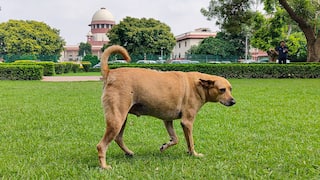Afghanistan Crisis: Taliban Postpone Govt Formation For Next Week - Know All About It
This comes as the Taliban was on Saturday expected to announce the formation of a new government in Afghanistan.

Kabul: The Taliban have postponed the formation of a new government in Afghanistan for next week, the insurgent group’s spokesman Zabiullah Mujahid said on Saturday.
“The announcement about the new government and Cabinet members will now be made next week,” the spokesman said without giving further details.
This comes as the Taliban was on Saturday expected to announce the formation of a new government in Afghanistan.
This is the second that the Taliban have delayed the formation of the new government in Kabul since they seized control of the country in mid-August.
Khalil Haqqani, a member of a committee constituted by the insurgent group to negotiate talks with different groups over the government formation, said the Taliban’s bid to form a broad-based government in Kabul acceptable to the world, in fact, is causing the delay.
Acknowledging “the Taliban alone will not be acceptable to the world”, he said: “The Taliban can form a government of their own but they are now focusing to have an administration in which all parties, groups and sections of the society have proper representation.”
Haqqani said former Afghan premier and head of Jamiat e Islami Afghanistan Gulbuddin Hekmatyar and brother of former Afghan president Ashraf Ghani, who have announced their support to the Taliban, will be given representation in the Taliban government, PTI reported.
He added the Taliban are also in the process of negotiating with other stakeholders to seek their support for their government.
Mullah Abdul Ghani Baradar, who is Taliban’s diplomatic face, is likely to lead the Afghan government, as per reports.
Earlier on Friday, US Secretary of State Antony Blinken said that America and the international community expect the Taliban in Afghanistan to form an inclusive government with representations from different communities and fulfil its commitments like countering terrorism, respecting the rights of women and minorities and not engaging in reprisal.
“The expectation is to see inclusivity in government, but ultimately the expectation is to see a government that makes good on commitments that the Taliban have made, particularly in freedom of travel, not allowing Afghanistan to be used as a launching ground for terrorism directed at the US or any of the allies and partners, upholding the basic rights of the Afghan people, including women and minorities, and not engaging in reprisals,” he said.
UK Foreign Secretary Dominic Raab on Friday said the Taliban had made a series of undertakings, “some of them are positive at the level of words” but there was a need to test whether they translated into deeds.
In New Delhi, Ministry of External Affairs (MEA) official spokesperson Arindam Bagchi said India’s immediate focus in Afghanistan was to ensure that Afghan soil is not used for terrorist activities against it.
Bagchi added it was still “very early days” to talk about any possible recognition of the Taliban.
Pakistan’s Foreign Minister Shah Mahmood Qureshi had earlier this week urged the international community not to repeat the “mistake” of abandoning the people of Afghanistan and warned that not engaging with the Taliban would give space to international terrorist organisations.
He said the international community had the options of either to engage with or isolate the Taliban following the US withdrawal from Afghanistan after 20 years.
“International community has to weigh its options,” Qureshi said in an interview given to Britain's Sky News, which was aired on Wednesday, Dawn reported.
He recalled that the world committed the same “mistake” in the 1990s and said that isolating Afghanistan would be a “dangerous option”.
Related Video
Breaking News: Maharashtra Politics Shifts: Congress Suspensions Boost BJP Ahead of Local Body Polls





































